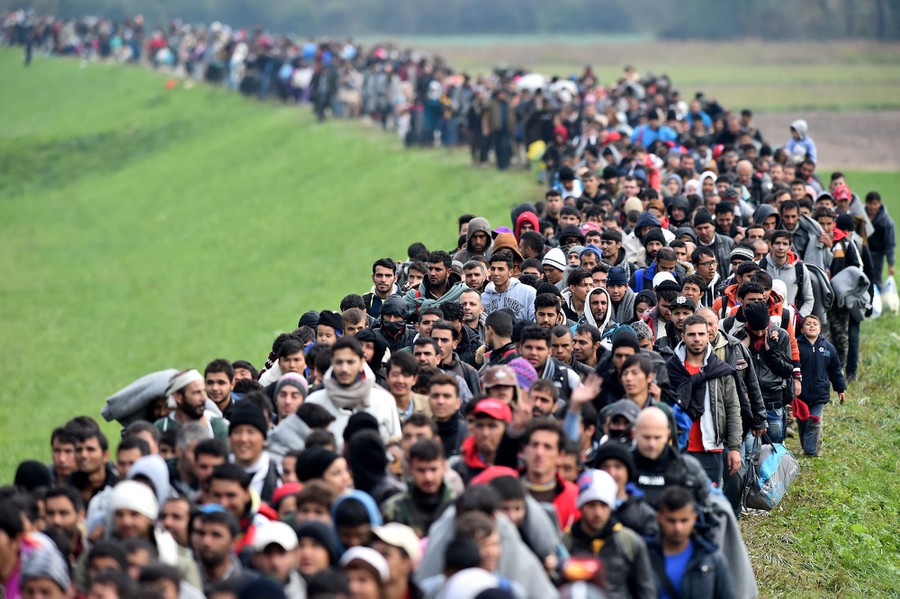SOURCE: https://www.amnesty.org/en/what-we-do/refugees-asylum-seekers-and-migrants/
Why do people leave their countries?
There are many reasons why it might be too difficult or dangerous for people to stay in their own countries. For example, children, woman and men flee from violence, war, hunger, extreme poverty, because of their sexual or gender orientation, or from the consequences of climate change or other natural disasters. Often people will face a combination of these difficult circumstances.
People who leave their countries are not always fleeing danger. They might believe they have a better chance of finding work in another country because they have the education or capital to seek opportunities elsewhere. Others might want to join relatives or friends who are already living abroad. Or they might seek to start or finish their education in another country. There are lots of different reasons for people to start a journey to build a life in a new country.
Definitions: What exactly is a refugee, an asylum-seeker and a migrant?
The terms “refugee”, “asylum-seeker” and “migrant” are used to describe people who are on the move, who have left their countries and have crossed borders.
The terms “migrant” and “refugee” are often used interchangeably but it is important to distinguish between them as there is a legal difference.
Who is a refugee?
A refugee is a person who has fled their own country because they are at risk of serious human rights violations and persecution there. The risks to their safety and life were so great that they felt they had no choice but to leave and seek safety outside their country because their own government cannot or will not protect them from those dangers. Refugees have a right to international protection.
Who is an asylum-seeker?
An asylum-seeker is a person who has left their country and is seeking protection from persecution and serious human rights violations in another country, but who hasn’t yet been legally recognized as a refugee and is waiting to receive a decision on their asylum claim. Seeking asylum is a human right. This means everyone should be allowed to enter another country to seek asylum.
Who is a migrant?
There is no internationally accepted legal definition of a migrant. Like most agencies and organizations, we at Amnesty International understand migrants to be people staying outside their country of origin, who are not asylum-seekers or refugees.
Some migrants leave their country because they want to work, study or join family, for example. Others feel they must leave because of poverty, political unrest, gang violence, natural disasters or other serious circumstances that exist there.
Lots of people don’t fit the legal definition of a refugee but could nevertheless be in danger if they went home.
It is important to understand that, just because migrants do not flee persecution, they are still entitled to have all their human rights protected and respected, regardless of the status they have in the country they moved to. Governments must protect all migrants from racist and xenophobic violence, exploitation and forced labour. Migrants should never be detained or forced to return to their countries without a legitimate reason.

